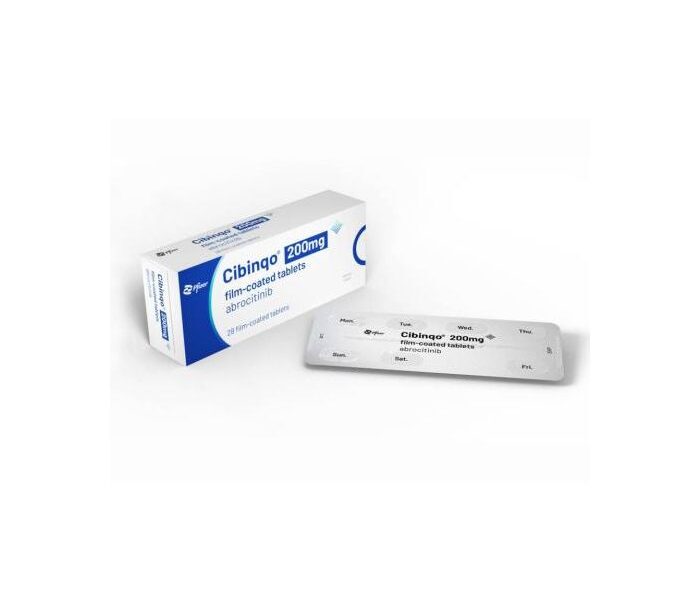
Cibinqo (abrocitinib) is a treatment for moderate-to-severe atopic dermatitis, or eczema. It’s for adults and teens 12 and older who need systemic therapy.
It comes in film-coated tablets, with 100 mg or 200 mg of abrocitinib in each.
Atopic dermatitis (AD) is a chronic condition where the immune system attacks healthy skin. It’s a relapsing inflammatory skin condition.
Abrocitinib, the active substance in Cibinqo, targets enzymes called Janus kinase-1 (JAK1). These enzymes are key in inflammation seen in AD. By blocking JAK1, abrocitinib reduces inflammation and symptoms of AD.
Cibinqo (abrocitinib) has been approved for atopic dermatitis treatment by:
Cibinqo (abrocitinib) received a Promising Innovative Medicine (PIM) designation from the MHRA.
This medicine may also be approved in other regions. If you have questions about its approval in a specific country, contact our support team.
The standard dosage is:
The maximal dose is 200 mg once daily.
The tablets must be swallowed whole and taken with or without food.
Cibinqo may be used alone or with other eczema medicines applied to the skin (topical).
If you have kidney problems that are moderate-to-severe, or if you are prescribed certain other medicines (see official prescribing information), the maintenance dose of Cibinqo will be 50 mg or 100 mg once a day.
If you have severe kidney problems, the starting dose of Cibinqo will be 50 mg once a day. Your doctor may also stop treatment temporarily or permanently if blood tests show low white blood cell or platelet counts.
Complete information about Cibinqo (abrocitinib) dosage (modifications) and administration can be found in the official prescribing information listed in our references section.1
Note: Please consult with your treating doctor for personalised dosing.
The most common side effects (≥10% of patients) listed in the prescribing information include:
The serious side effects listed in the prescribing information include:
Cibinqo may harm your unborn baby. If you’re a female who can get pregnant, avoid getting pregnant and breastfeeding. Use effective birth control during treatment and for at least 1 month after stopping.
Talk to your doctor if you get pregnant. This medicine should not be used during pregnancy.
Before starting treatment, tell your doctor about all medicines you take and your medical conditions.
For a full list of side effects and adverse reactions, see the official prescribing information.